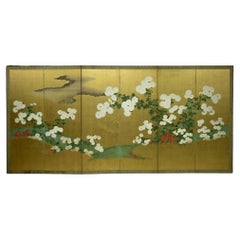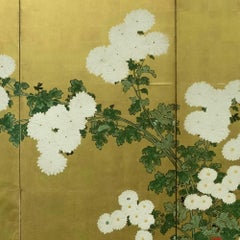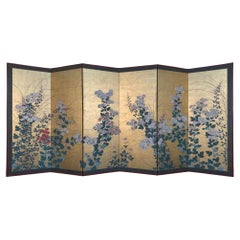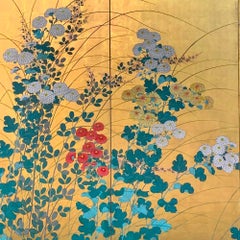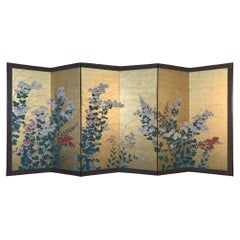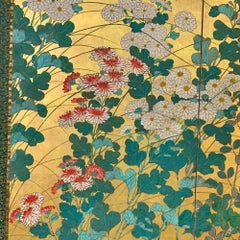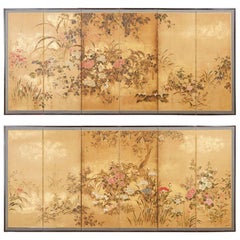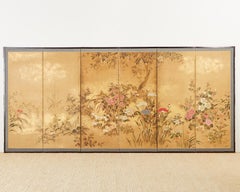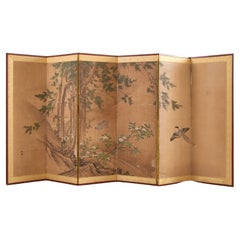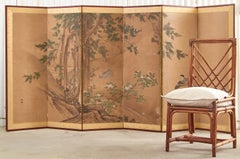Late Edo Period Rinpa School Chrysanthemum Blossom Screen
$7,660Sale Price|20% Off
Late Edo Period Rinpa School Chrysanthemum Blossom Screen
By Rimpa School
Located in Fukuoka, JP
Late Edo Period Rinpa School Chrysanthemum Blossom Screen Period: late Edo, early 19th century Size: 364 x 172 cm (143 x 67 inches) This exquisite late Edo period Rinpa school scr...
18th Century Japanese Edo Antique Rimpa School Furniture
Paper
